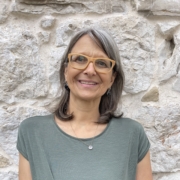Ute Eickelkamp is Senior Research Fellow funded by the Fritz Thyssen Foundation at the Institute for Social Movements at Ruhr University Bochum. Her ethnographic research focuses on emergent images of nature in the face of climate change and ontological duress, in contexts of Indigenous survivance and (post)industrial precarity in Central Australia and Germany respectively. She is editor of Growing Up in Central Australia: New Anthropological Studies of Aboriginal Childhood and Adolescence.
Project statement : Images of Nature in Old and New Working-class Milieus in Germany’s Ruhr Valley
Our interdisciplinary research After Coal investigates images and practices of nature among working-class milieus in Germany’s post-mining region, the Ruhr Valley, which is aspiring to become “the greenest industrial region in the world”. Conceiving the “great transition” not only as a political project und economic strategy, but also as a social, cultural, emotional and historical process, After Coal argues that the question of how the new precariat might be or become a cultural producer of nature – and not just employable – in the absence of support from the labour movement and without heritage value, requires urgent attention. We ask: (1) How have people belonging to the Ruhr’s old and new working-class milieus known and engaged nature over time? (2) What are their environmental memories and how do these interact with current perceptions of the ecology? (3) What might be their affective identification with the natural environment, at what level (neighbourhood, suburb, regional) does emotional attachment to nature occur, and are there major differences between the industrial working-class and precarious workers?
After Coal brings historical movements into a relationship with the socioeconomic and cultural polarisation of the present that is playing out at the regional level. The Project aims to creates new milieu-specific knowledge about the accords and frictions between public and private understandings of nature. We seek to intervene as much as observe. Of special interest is the potential for galvanizing social and ecological transformation through small-scale, locally embedded arts initiatives that link into, work with and challenge the everyday cultural orientations and practices in peripheral zones of precarity.
Email: ute.eickelkamp@icloud.com





